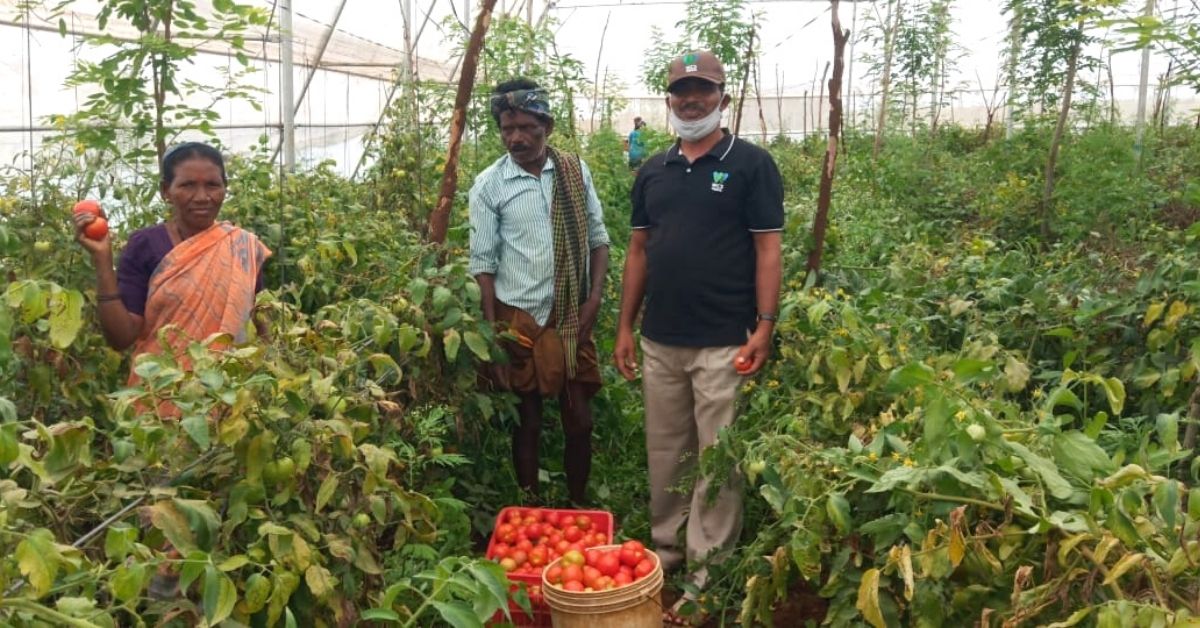Prema, a member of the tribal community in HD Kote taluk, Karnataka, had always relied on forest produce for her livelihood. But when the state government rehabilitated her from Nagarhole forest in 2007 to the Sollepura reserve forest, things changed. They suggested she take up farming, but she had no prior experience in the field.
So Prema began taking training from JSS Krishi Vignana Kendra and Organic Krishi Kendra. She started by growing ragi, custard apple, cotton, corn and other commercial crops. But conventional farming gave her little revenue. Moreover, her 3-acre farm saw much damage when wild animals such as elephants would enter and eat her harvest.
However, in recent years, she has been growing chia, a millet from South America that has a great demand as a superfood. She earns thousands of rupees and helps others around her grow and prosper as well.
Earnings increase threefold

In 2017-18, Prema learned about chia seed farming during one of the training courses organised by the KVK. “I watched a video demonstrating the cultivation method. I was impressed after learning that the crop earned more profits than the conventional cotton crop,” she tells The Better India.
“In our region, the cotton crop yields Rs 20,000 per acre, but chia seeds can help us earn up to Rs 1.20 lakh in the same area,” says the 52-year-old.
Under the guidance of agriculture experts, Prema learned organic farming techniques and started growing chia. Her produce sells at Rs 280 a kilo. “Chia seeds have great demand in the urban market. I realised this when organic retailers from Bengaluru approached me to buy the crop. I sold the harvest directly, without any transportation cost or involving a middle man, which cut down the marketing expenses,” she adds.
She says that 30 farmers with her adopted chia farming, out of which only six succeeded. Prema was the only one to receive a bumper harvest that earned her over a lakh of rupees.
Prema says that besides chia being a lucrative crop, it is easy to grow it in her area, as it requires less fertile soil. “The crop does not require much water and needs similar techniques to growing ragi. I sow the crop in September-October, and the rain from the retreating monsoons is adequate for its growth. It takes 40 days for the plant to flower,” she explains.
Prema adds that an added advantage is that the chia harvest does not attract wild boars, elephants and other wildlife that might ruin the crops.
She earned Rs 1.20 lakh from her first harvest and was able to afford a two-wheeler for her husband, Dasappa. “It has become convenient for us to commute and access the city,” she says proudly.
‘Adapt to the change’

The farmer says that she and Dasappa make trips on their bike to neighbouring villages and offer lessons on growing chia to the farmers.
Dasappa says, “Growing chia helped us a lot, and we want to help others earn more money. Sometimes, we travel up to 50 km to faraway villages to guide the farmers.” He adds that they also sell chia seeds to farmers, which adds to the overall income.
So far, they have been able to help 15 farmers successfully grow chia.
However, an increase in supply has reduced the price of the crop. “As more farmers took up chia cultivation, the overall production increased in this region. It resulted in a price drop, and our income has reduced to Rs 80,000 per acre. But we do not feel disappointed, as the earnings are still three times higher than what we used to gain by cultivating cotton,” she says.
Sharing her learnings from experience, Prema says that every farmer should become progressive. “A farmer should always be updated with new techniques and understand changing market demands. I also observed other progressive farmers around the village and modified farming techniques to my benefit. Adapting to a changing environment will only help farmers progress and earn more money,” she adds.
Edited by Divya Sethu
No comments:
Post a Comment